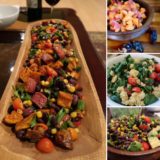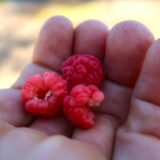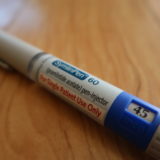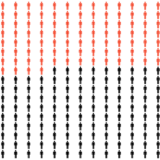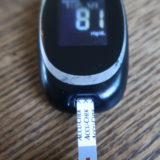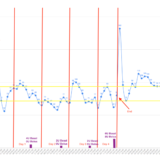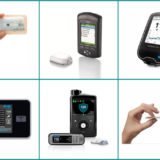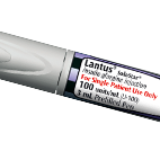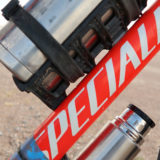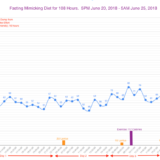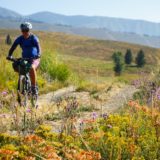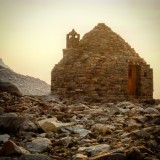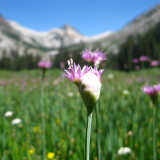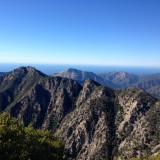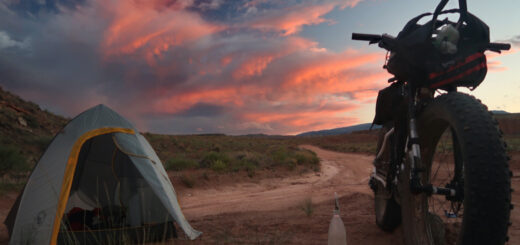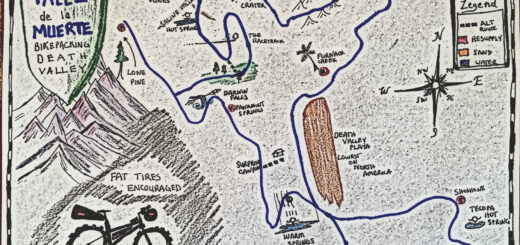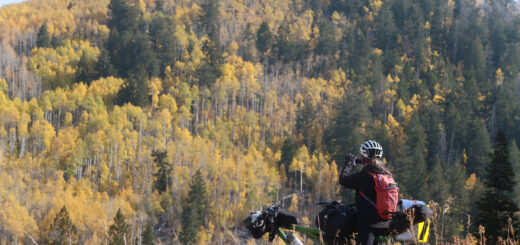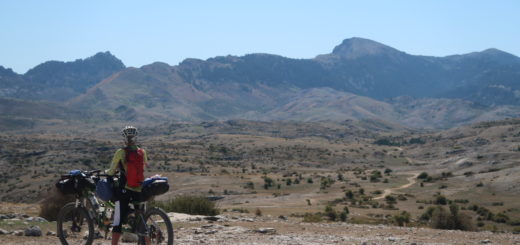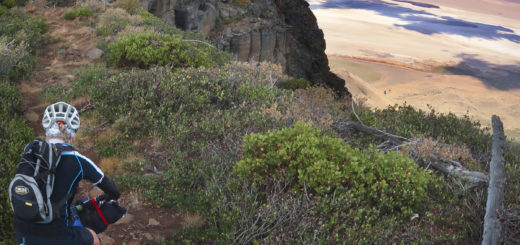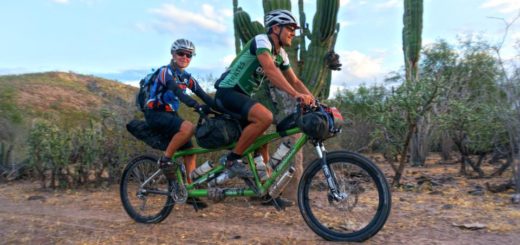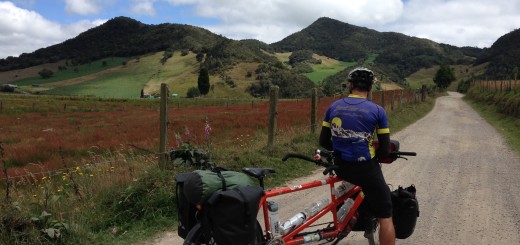02/04/2024 Bikepacking Ghana Day 180 : Sacred Waters
Doing the “tourist thing” is kind of perplexing. The other day, my guide took me to the river and said “The river is sacred. It is believed that the souls of the dead come here to say goodbye.”
While such stories are always entertaining, the reality is that the only wayward soles I see are from the made-in-China sandals, disintegrated from aqueous abuse as the women stand in the river washing clothes. Undoubtedly, I must be missing something.
I came to West Africa thinking I’d be kept up late listening to drum circles, wild animals would damage my tent, and I’d see forlorn starving children. Fortunately, the likelihood of encountering any of these scenarios is vanishingly small; almost as small as glimpsing the elusive souls in the river.
******
I hadn’t planned to ride the long way around Lake Bosumtwi. It was formed by an ancient impact crater. There is a 700’ vertical between the rim and the surface of the water, which reduced my interest in a blind climbing trudge. I had been talking to some kids near the rim for a while. Thomas said, “Hey, can I have your bottle?”
He pointed at my empty 1.5 liter water bottle. I had been carrying two of these for refilling and shower water at camp. Now that the camping is over, I only needed one for drinking.
“Why would you want that? I thought these were just trash.”
“No, we fill it with palm oil.”
He then pointed at the table down the road. It was a little roadside stand with filled plastic bottles arranged for sale. You see this quite a bit in West Africa: refilled water bottles with some food item… peanuts, camel milk, palm oil. I had naïvely thought that they had been using new, clean bottles. Think again.
Collins piped up, “Did you have any problems at borders? I think it is dangerous.”
“No problems. What kind of problems are you talking about?”
“With the police. Do they try to stop you?”
“No, almost everyone has been very nice,” I told the truth.
“I want to ride my bicycle to Spain, but I think they do not like me. They will stop me because I am from Ghana.”
Alexander suddenly blurted out, “They think we are monkeys!”
A couple of the other kids laughed nervously.
“Our friend went to Spain and he said the people there don’t like black peoples. They think we are monkeys,” continued Collins.
I tried to reassure them that this wasn’t true… but it was clear that their Akan speaking immigrant friend was more convincing than their new white friend from the USA. The worst part is that even if just one person said this, the idea is so painful that it becomes the primary narrative. I couldn’t help but think back to episode 175 - where people form opinions on other groups with so little real information.
We continued to talk and eventually an adult came on the scene. He is the one who convinced me that I should ride around the lake. He was proud of the scenic lake his locale had to offer.
******
The constantly undulating lake terrain was difficult, but it eventually brought me to an informal looking roadside mine. I stopped and asked if I could take a photo, and David Coffee came running over. I always wonder what people are thinking when they christen their child with these food and product names.
“What are you mining?” I asked
“Gold!” David called out to his friend to bring the gold.
They carefully unwrapped a little silverish material from a black plastic garbage bag.
“But that is not gold; it is silver!”
“Original gold! It’s original gold!”
“You found this today?”
“Yes.”
“How much is it worth?”
“1000 Cedi” (that is about $81 USD).
“So today is a good day?”
David smiled broadly, “yes, YES. Today is a good day.”
While such stories are always entertaining, the reality is that the only wayward soles I see are from the made-in-China sandals, disintegrated from aqueous abuse as the women stand in the river washing clothes. Undoubtedly, I must be missing something.
I came to West Africa thinking I’d be kept up late listening to drum circles, wild animals would damage my tent, and I’d see forlorn starving children. Fortunately, the likelihood of encountering any of these scenarios is vanishingly small; almost as small as glimpsing the elusive souls in the river.
******
I hadn’t planned to ride the long way around Lake Bosumtwi. It was formed by an ancient impact crater. There is a 700’ vertical between the rim and the surface of the water, which reduced my interest in a blind climbing trudge. I had been talking to some kids near the rim for a while. Thomas said, “Hey, can I have your bottle?”
He pointed at my empty 1.5 liter water bottle. I had been carrying two of these for refilling and shower water at camp. Now that the camping is over, I only needed one for drinking.
“Why would you want that? I thought these were just trash.”
“No, we fill it with palm oil.”
He then pointed at the table down the road. It was a little roadside stand with filled plastic bottles arranged for sale. You see this quite a bit in West Africa: refilled water bottles with some food item… peanuts, camel milk, palm oil. I had naïvely thought that they had been using new, clean bottles. Think again.
Collins piped up, “Did you have any problems at borders? I think it is dangerous.”
“No problems. What kind of problems are you talking about?”
“With the police. Do they try to stop you?”
“No, almost everyone has been very nice,” I told the truth.
“I want to ride my bicycle to Spain, but I think they do not like me. They will stop me because I am from Ghana.”
Alexander suddenly blurted out, “They think we are monkeys!”
A couple of the other kids laughed nervously.
“Our friend went to Spain and he said the people there don’t like black peoples. They think we are monkeys,” continued Collins.
I tried to reassure them that this wasn’t true… but it was clear that their Akan speaking immigrant friend was more convincing than their new white friend from the USA. The worst part is that even if just one person said this, the idea is so painful that it becomes the primary narrative. I couldn’t help but think back to episode 175 - where people form opinions on other groups with so little real information.
We continued to talk and eventually an adult came on the scene. He is the one who convinced me that I should ride around the lake. He was proud of the scenic lake his locale had to offer.
******
The constantly undulating lake terrain was difficult, but it eventually brought me to an informal looking roadside mine. I stopped and asked if I could take a photo, and David Coffee came running over. I always wonder what people are thinking when they christen their child with these food and product names.
“What are you mining?” I asked
“Gold!” David called out to his friend to bring the gold.
They carefully unwrapped a little silverish material from a black plastic garbage bag.
“But that is not gold; it is silver!”
“Original gold! It’s original gold!”
“You found this today?”
“Yes.”
“How much is it worth?”
“1000 Cedi” (that is about $81 USD).
“So today is a good day?”
David smiled broadly, “yes, YES. Today is a good day.”
Photos:

Left to right: Alexander, Thomas (smiling), Susie (pink dress), Peter (pink shirt), ??, ,??, MG (kissing lips), Collins, ?? And before Jantos asks.. I do not know what middle finger pointing down means, but this time it’s not a peace sign ✌️

Typical highway… but the last 40 miles would be on pavement. Still, even without the dust, I’m breathing in smoke all day.
—


That, my friends, is a view of the lake. Why is it that when I try to think of words to describe West Africa, the word “beautiful” comes to mind? It’s not this crap. It’s the beautiful people - literally and figuratively. If it weren’t for them, this trip would have ended 95 days ago.
—


This is me with Theresa. Often when I get home, people ask me things like, “did people try and rip you off?” I think this stems from language difficulties for the traveler and confusion about the prices of items. The answer is a resounding “No.” Theresa had her own little shop, and she (like all the other shop owners) was honest. I really want to emphasize the honesty - especially of shop owners. These are people who have made the effort to start a small business, and rise above the local challenges. There have been a couple problems that I’ve mentioned, but it has always been in instances where someone is “working for” someone or an entity. That would be the rare border guard working for the government, or an attendant working for a gas station. These instances are very rare, just like the monkey comments, and I think they are a very minor theme in the overwhelmingly good experience of West Africa. Of course, the painful experiences are the ones people remember best.. but don’t really represent the full picture.
—
*corrected. I thought she said her name was Carissa, but when she WhatsApp’d it is Theresa.

Ok! Quality of life is improving! I stayed at the “best hotel ever,” and they served this! I haven’t seen food like this in a couple months. Unfortunately, this hotel was a one-off and I’m back to cookies and sardines for the day.
—

Meet David Coffee

That is original gold!

This reminds me of Malakov Diggins. The kids gleeful demonstrated their water cannon for me. They use it to blast the dirt. We know this is not the best thing for the environment.
—
Strava Comments:
Sօʀƈɛʀɛʀ 🅅.
Hi Brian. Back here we've had a strong storm with wind, power failures and fallen trees. Sacred waters are falling from the sky!
J&K S.
10+ years ago, "micro finance" was spreading in Africa and the development community thought it had great promise. Someone like one of your electricity store owners would get a small loan ($100) from a nonprofit NGO to start or expand their business. When the loan was repaid, the proceeds went back into the pool of money available for loans. Many providers got into the field. Q: have you seen any evidence of that kind of capital helping entrepreneurs you've encountered?
Ann L.
Fascinating stuff as always. I’m sure you enjoyed that breakfast a lot after being on a cookie diet for so long.
Janet W.
Here's to cheers and 'peace' signs of whatever type - they are all positive, as are the honest people of West Africa! Thank you for bringing them to us, so we can get just a little bit of an idea about what an inquiring and unique group of people they are. Enjoy your last day of riding tomorrow. It's been a journey none of us will forget!
Brian L.
J&K Shaw - I’d love to know the answer to that question, but I don’t think the answer would be immediately obvious. From the looks of it, most of the NGO activities were in Sierra Leone. I’m basing that strictly on observations of Toyota Land Cruisers with stickers on the door with the organization name. Theoretically, NGOs could be more incognito if they wanted. Actually, it could be a good idea (in the ~3 occasions I saw a Land Cruiser stopped, it would be surrounded with children). There is a lot I don’t see or know. There has been very little NGO evidence in Ghana or Ivory Coast. In fact, in Ivory Coast, the signs outside of schools and “health posts” often indicated these were government projects! In Ghana, there are even fewer signs, suggesting that they don’t need to advertise what they are doing for the people. I have mixed feelings about the best ways to help. So many opportunities exist for economic development here… it will make for interesting discussion during post-ride coffee.
Mark G.
Crater Lake's rim in Oregon is about 700 feet from the water surface. On a clear day it'd be interesting to see Lake Botsumtwi. I did find lots of Internet photos. Also finding lots of videos on "hand signs in Ghana". Love, "if it weren't for the people...."
Ride Stats:
| Elapsed Time | Moving Time | Distance | Average Speed | Max Speed | Elevation Gain | Calories Burned |
|---|---|---|---|---|---|---|
|
09:53:44
hours
|
07:23:31
hours
|
139.05
km
|
18.81
km/h
|
64.00
km/h
|
2,230.00
meters
|
3,688
kcal
|







